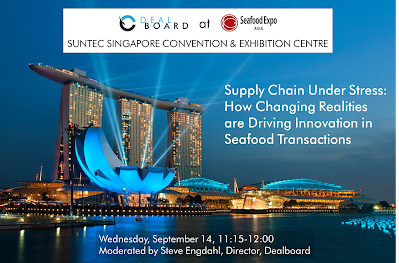“I don’t have time.”
How often do you seek someone’s attention only to hear that
phrase? How often do you use that phrase with others?
In the seafood industry, where staff layers have been cut
back and where margins are razor-thin, it’s customary to be extremely busy.
Some may even feel a sense of importance because they don’t have room in their
schedules.
But are you keeping busy with the right things?
Recall the Eisenhower Matrix, which organizes work based on
urgency and importance:
|
|
Urgent
|
Not Urgent
|
|
Not Important
|
Are you too busy here…
|
|
|
Important
|
|
…to have time for what’s
here?
|
Wouldn’t it be nice to receive the gift of time? To free up
your schedule to focus on more important things, and things you don’t get
around to enough in your daily activities?
Negotiating seafood transactions is pretty important, and
urgent, so this usually receives a lot of attention, rightly so.
But after the transaction is negotiated, what happens next?
Hiding right behind the negotiation lies a host of necessary tasks which eat up
valuable time. Think about all the different teams both inside and outside your
company who need to be informed of the details of the transaction – logistics
services, inspection services, operations, accounting, and more.
Dealboard believes you can gain back valuable time by
rethinking how you connect the place where you negotiate transactions with the
rest of your business. Any time you re-type something into another system or
pick up the phone to recite information to someone else, you’re consuming your
own time on tasks which, though urgent, aren’t the most important. To make
matters worse, if you are anything less than absolutely perfect every time you
do this, you might make a simple mistake and introduce an error which costs you
and others even more valuable time to correct.
Give yourself and your team the gift of time by improving
and automating your operations. Negotiate transactions using a platform which
can automatically and flawlessly transmit the transaction details to the
systems, departments and third parties who need to spring into action to
fulfill it.
You deserve the gift of time.



